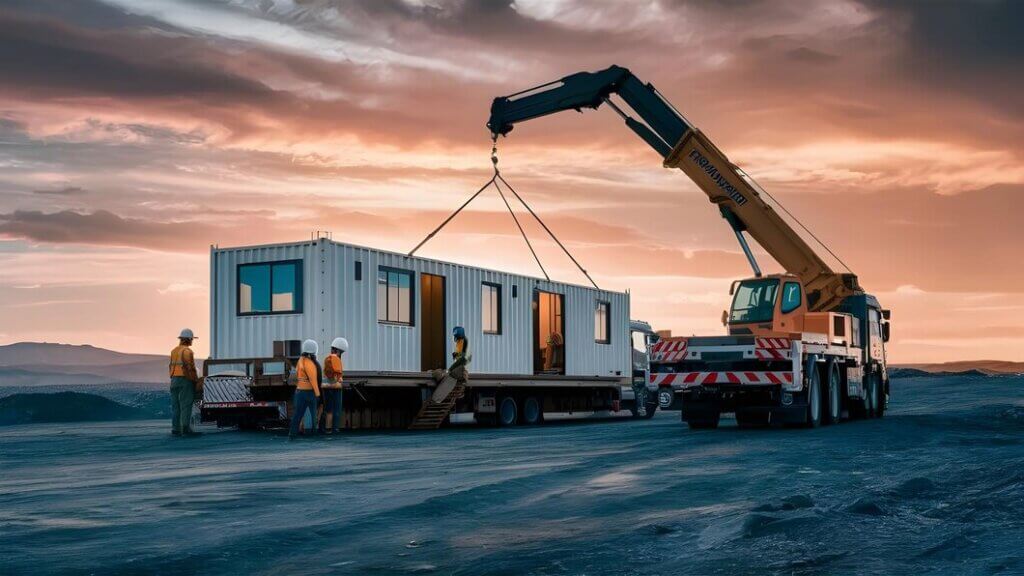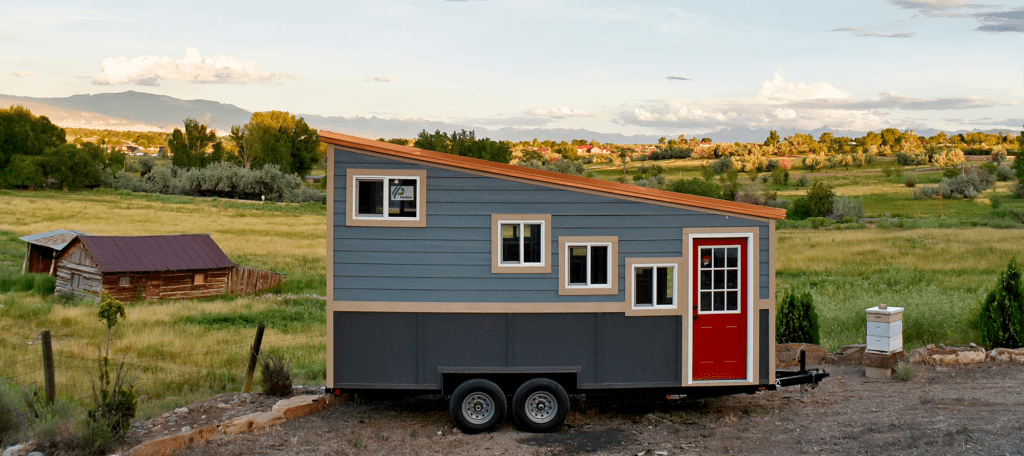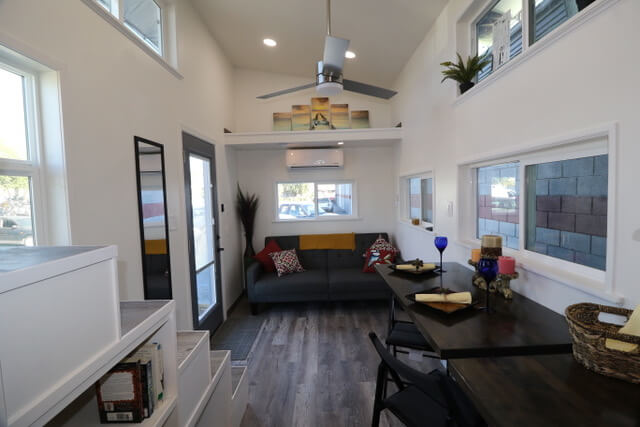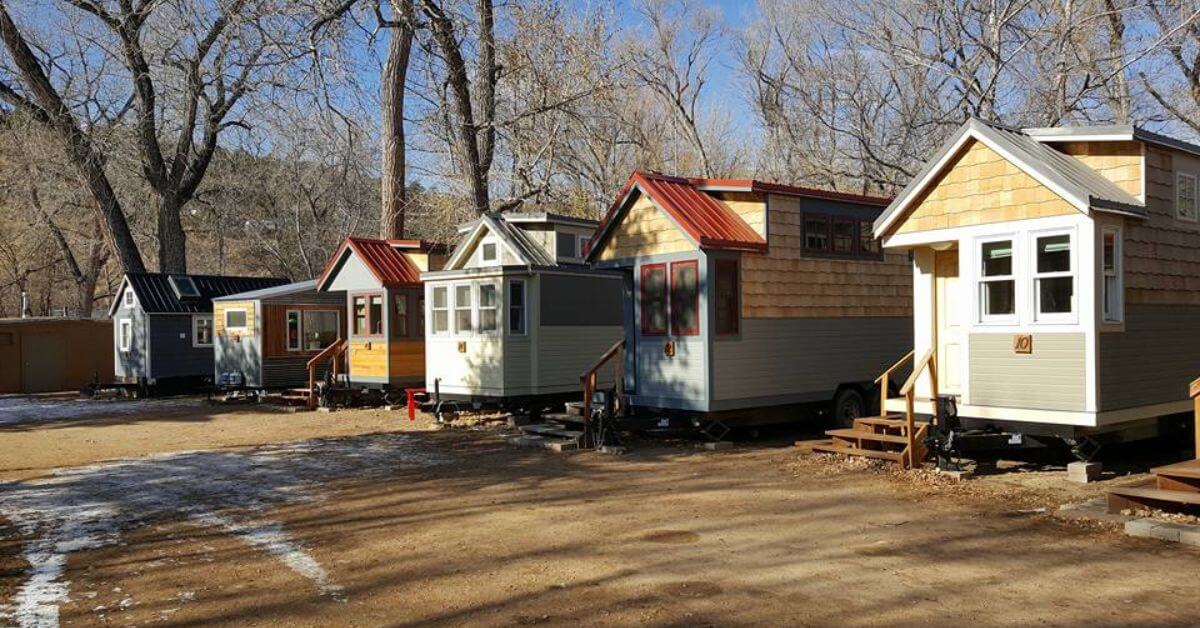The movement towards minimalistism has been gaining momentum within the Rocky Mountains, where nature meet technological innovation. Colorado is a place that’s famous for its stunning views, its progressive lifestyle and open-minded community is quickly becoming one of the most ideal areas to explore the minimalist living. It doesn’t matter if you’re seeking mountain views as well as economic independence or just a smaller footprint on the environment in Colorado is a great place to live. Centennial State offers a unique mix of challenges and opportunities to living in a tiny home. In this piece we look at what makes Colorado an ideal location for tiny houses, the best places to locate the top tiny house for sale Colorado and the best way to navigate through the maze of tiny home regulations.

The Allure of Tiny Living in Colorado
Living in tiny houses isn’t only a fashion statement but a broader cultural trend. Based on values like simple living, sustainability and independence, this lifestyle is particularly appealing to those living in areas such as Colorado and Colorado, where the untamed nature and community-oriented living is a part of the culture. A lot of Coloradans are moving to smaller living spaces, not for the sake of downsizing, but to expand their lives.
Colorado’s varied geography, ranging including alpine forests and desert plateaus, offers various off-grid and tiny houses that can be built on grid. From snow-covered cabins located in the Rockies to sleek modern houses in the Front Range, the state has a broad range of options. Take into account Colorado’s green-minded attitude which is the reason people are constantly looking for the perfect small house to buy in Colorado.
Popular Locations for Tiny Homes in Colorado
Colorado’s diverse terrain and different kinds of communities means that where you set your sights on putting the foundation of your small home can drastically alter your life. Cities like Denver and Boulder have small home communities, and they are currently trying to incorporate their communities into the market for housing. They are perfect to those looking for accessibility to urban amenities, but still have a minimal style of living.
However, areas that are rural like areas like San Luis Valley or the Western Slope offer seclusion, privateness, and room for spreading across. If you’re thinking of building the possibility of a solar-powered residence with views of the mountains These quieter areas could be the perfect spot. But, these areas present their own set of challenges in particular in relation to small house rules and regulations, which differ widely in the different municipalities and counties.
Understanding Tiny House Regulations in Colorado
One of the greatest challenges that tiny home owners are faced with is the legal environment. Tiny-home rules for tiny homes in Colorado do not apply uniformly across the state. knowing them is essential prior to buying land or moving into an apartment that is tiny.
Building codes and zoning laws typically determine if the tiny home is permitted or not, and, if it is and under what terms. Some states allow tiny houses in only ADUs, or accessory dwelling units (ADUs) and some allow them to be primary residences when certain conditions meet. In some counties, tiny houses must be constructed on a foundation that is permanent as well as meet certain specifications for square footage in order to qualify as legal residences.
In addition, tiny houses on wheels are typically considered recreation vehicles (RVs) however, a majority of locations do not permit RVs to be used as permanent homes. This grey area could complicate the hunt to find the perfect tiny house to buy in Colorado particularly in the event that you are planning to become moving. Be sure to check with local planning departments and study zoning ordinances prior to signing a contract.

Benefits of Owning a Tiny House in Colorado
The benefits of having the smallest house in Colorado can be as vast as the mountain ranges of Colorado. One of the greatest benefits is freedom from financial stress. tiny homes tend to be cheaper to buy and maintain, which frees up money for leisure, travel and saving to save for the future.
Sustainability in the environment is a major attraction. Spaces that are smaller use less water, energy, as well as building material. A lot of tiny houses are built using green technology, such as solar panels, composting toilets as well as rainwater collection systems. They align exactly with Colorado’s green values.
Furthermore, the minimalist style encourages a more intentional lifestyle. With no burdens of excessive property or space, people discover that they are able to concentrate more on relationships, experiences as well as personal development. To those who want a less complicated and more relaxed way of living Finding the perfect tiny home for sale in Colorado could be the beginning of an exciting journey.
Challenges You Might Encounter
Although the lifestyle comes with its benefits, it’s not without its challenges. One of the biggest challenges is finding a location where you can legally park your car or construct the tiny home you’ve always wanted. Lack of uniform rules for tiny houses makes each city and county has to be examined in isolation. This could result in delays, unanticipated expenses, and even the need to relocate should local officials decide that your house doesn’t comply with the requirements.
The space constraints are also hard, particularly for those who aren’t used to minimalist living. Removing a home from its traditional layout is not about the removal of possessions, but a complete change in your attitude. The privacy and storage options are usually small, which may not be suitable for everyone, particularly parents with kids.
The weather can be another worry. The climate in Colorado ranges from intense snow to blazing summer heat. The smallest of homes must be insulated and equipped for these extremes, specifically in areas that are off grid.
The Cost of Going Tiny in Colorado
The cost is an important factor in evaluating an tiny home for sale in Colorado. Although they are generally more affordable as traditional houses, the prices will vary based on the size, amenities as well as the location and whether the home is built to order or prefabricated. An affordable model could cost anything from $30,000-$60,000 depending on the features, and luxurious or personalized homes may cost over 100 thousand dollars.
A land purchase is an additional factor to take into consideration. While the property has a reasonable price and the land is in good condition, prices for land in regions such as Boulder or Aspen could be exorbitantly expensive. A few homeowners choose to put the tiny houses on rental lot or within cooperative community homes, which may lower initial costs, but could have ongoing costs or limitations.
Be sure to include the cost of utilities and towing (if the home you live in is mobile) and insurance. The costs could be less than conventional homeownership, but they could still quickly add up. It is essential to budget financially for the initial as well as longer-term costs.
Building or Buying: Which is Better?
The choice to construct or purchase an apartment is largely personal to you and will depend on your financial budget, timeframe as well as your skillset. Many prefer building their own house to make sure that it is in line with their requirements and is in line with their beliefs. This option is cost-effective and rewarding, however it does require an extensive amount of time and experience in construction, or a desire to study.
Some may look for an tiny home for sale in Colorado to steer clear of difficulties with building a DIY home. A pre-built or custom tiny house can help save time and ease of stress, especially if it is already built to the local building code. It could, however, make it difficult to personalize and may cost more.
Whatever route you decide to take Be sure to consider your local tiny home regulations at an early stage of the procedure. Making sure you are in compliance early will save you hundreds of dollars as well as countless moments of frustration later on later on.

The Future of Tiny Houses in Colorado
The trend towards tiny houses is not slowing down, with the most notable exception of Colorado. While housing costs continue to climb and the need for sustainability is becoming more important the increasing number of homeowners are opting for compact homes as a feasible alternative. To address this, some cities are beginning to modify their zoning regulations to allow smaller homes with greater ease.
Ingenious developments, including small-sized home communities, as well as eco-villages have begun to pop up throughout the state. These developments not only provide legally-built homes, but frequently include shared amenities like gardens as well as a feeling of belonging. Although they are still in the early stages there is a rising acceptance of tiny houses as an appropriate and beneficial type of living.
Conclusion
Colorado’s rugged beauty as well as its innovative style make it a perfect location for the small-home living. Yet, success with this business requires more than passion. From understanding tiny house regulations to choosing the right location and managing costs, there are many factors to consider. You may be dreaming about your own cabin set in the forest or looking for that perfect tiny home for sale in Colorado doing your research is vital.
Living in a tiny apartment in Colorado is much more than an option for housing, it’s a that is a commitment to sustainability, simple and freedom. If you’re willing to accept this challenge and take on the challenge, the rewards could be equally as enthralling and expansive like those of the Rockies themselves.
